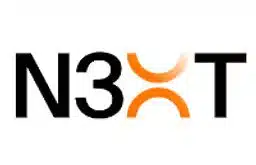Discover Financial Service's Inc.'s proposed acquisition of the Pulse EFT network, announced yesterday (Digital Transactions News, Nov. 15), hands the Riverwoods, Ill.-based card company instant credibility in the business of PIN debit, but it also may propel Discover's efforts to break into the high-growth signature-debit card arena. Discover, apparently encouraged by court rulings that allow it to cobrand payment cards with banks, had announced this summer its interest in launching a signature-debit card to be co-issued with banks that would compete against products offered by Visa and MasterCard. And while payment observers believe that a Discover product could be quite appealing to retailers put off by what many perceive as high interchange rates changed by Visa and MasterCard, they aren't so sure such a card would appeal to bank issuers. “Discover will face an uphill battle in this game as Visa has made such huge strides already,” says John Gould, director of consumer credit for consulting firm TowerGroup, Needham, Mass. “Discover can probably make a strong case to merchants to accept its card because of its pricing, but I'm not sure how appealing the card is going to be to banks because it has a lower interchange rate. Discover claims that it can offer banks a lower-cost product, but it's usually the interchange rate that banks look at.” Discover's fees to merchants on its credit card products have been historically lower than the discount rates retailers pay for Visa and MasterCard transactions. Discount rates are charged by acquirers and are based on the bank card networks' interchange rates. This need to attract banks is what makes the Pulse acquisition so important. The purchase will put Discover in partnership with 4,100 institutions that are members of the Pulse network?institutions it is likely to want to court as issuers of its debit card. “We provide a conduit for Discover to reach and talk to financial institutions about what they want in a debit card,” says Stan Paur, president and chief executive of Pulse. “Together, we can develop a significant national presence in signature debit. Plus, Discover has shown a lot of flexibility in working with institutions to address their concerns so that they can have three, not two, debit card options.” Already, Pulse is experienced in the signature-debit business as it processes signature-debit card transactions for 250 of its members that issue either Visa or MasterCard debit cards. Besides promoting signature-based debit cards, Pulse intends to work with Discover to develop additional electronic payment services, including prepaid cards. Pulse has already begun to help its members develop a range of prepaid cards, including gift cards and payroll cards. But Discover's national presence and its standing with retailers provides a lot more resources that can be used in those efforts, Paur says. The acquisition of Pulse by Discover is significant is that it represents the last of the large electronic funds transfer networks that had been owned by its members. Paur explains that the original EFT networks, which were formed by banks and originally controlled by banks, need greater resources than what they can get solely from members. “Discover brings the capital and resources needed to compete in today's world,” Paur says. “This acquisition was approved by our board, which shows that financial institutions today are putting more emphasis on the ability to develop competitive new products and pricing models than on ownership and control.” The acquisition must still be approved by a vote by all the members. Under Pulse rules, each member gets one vote, regardless of its size.
Check Also
Block Slashes Its Workforce as It Goes All in on AI
Block is cutting its headcount by more than 40%, the company announced late Thursday during …






